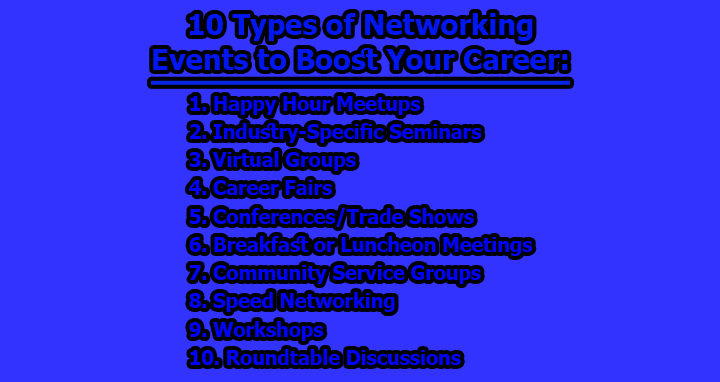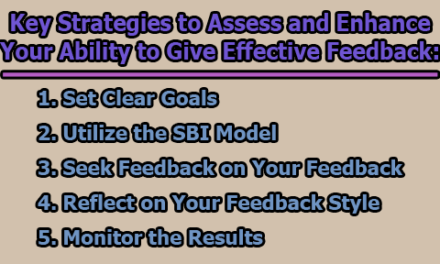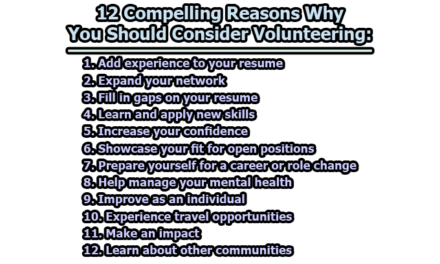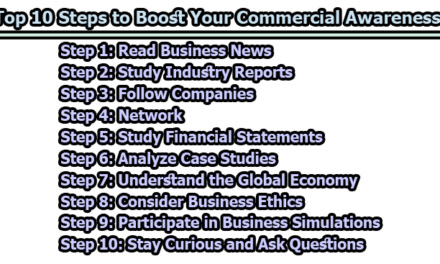10 Types of Networking Events to Boost Your Career:
Networking has become an essential aspect of career development in today’s competitive professional landscape. Building a strong network of contacts can open doors to new job opportunities, foster partnerships, and provide valuable insights from industry experts. Engaging in diverse networking events allows professionals to create meaningful relationships and stay updated with the latest trends in their field. Let’s delve into 10 types of networking events to boost your career.
1. Happy Hour Meetups: Happy hour meetups are informal networking events that take place in a casual setting, often at a bar or restaurant. The organizers reserve a section of the venue for the networking group, creating a relaxed and social atmosphere. Attendees are welcome to enjoy drinks and appetizers while engaging in conversations with other professionals. The laid-back nature of happy hour meetups allows participants to connect on a more personal level, making it a low-pressure way to expand their professional network. These events are ideal for individuals who prefer a less formal environment and want to build meaningful connections in a relaxed setting.
2. Industry-Specific Seminars: Industry-specific seminars are educational networking events that focus on topics relevant to a particular field or industry. These events often feature expert speakers who share their knowledge and insights on various subjects. Before and after the seminar, attendees have the opportunity to interact and network with like-minded professionals. Industry-specific seminars not only provide valuable information and learning opportunities but also create a conducive environment for networking and collaboration. Participants can exchange ideas, discuss challenges, and potentially find new business prospects or career opportunities within their industry.
3. Virtual Groups: Virtual groups have gained popularity as networking platforms in the digital age. These groups are formed on social media websites, online forums, or communication platforms like Slack. Members of these virtual groups can participate in online networking events, such as webinars, virtual presentations, or live Q&A sessions with industry experts. Virtual networking events allow professionals to connect with others regardless of geographical constraints. This type of networking is especially valuable for individuals seeking to expand their global network, gain insights from international professionals, and stay up-to-date with industry trends worldwide.
4. Career Fairs: Career fairs are essential networking events for students, recent graduates, and job seekers. These events are commonly organized by educational institutions, companies, or job boards. Career fairs provide a unique opportunity for attendees to interact directly with representatives from various companies and organizations. Job seekers can inquire about job openings, submit their resumes, and make a memorable first impression. Additionally, career fairs allow attendees to gain insights into different industries, learn about career paths, and build relationships with potential employers.
5. Conferences/Trade Shows: Conferences and trade shows are comprehensive networking events that combine educational sessions with face-to-face networking opportunities. Trade shows provide businesses within a specific industry the chance to showcase their products and services. Attendees can explore various company-sponsored booths, interact with representatives, and discuss potential collaborations or business partnerships. Conferences, on the other hand, feature keynote speeches, seminars, and panel discussions led by industry experts. These sessions offer valuable insights and opportunities for attendees to connect with peers, exchange ideas, and discuss industry challenges and advancements.
6. Breakfast or Luncheon Meetings: Breakfast or luncheon meetings offer a more structured setting for networking. These events often include a prepared meal, providing a comfortable environment for professionals to interact while enjoying good food. The purpose of these meetings can vary – it could be a regular gathering for group members to discuss projects, share updates, or plan future initiatives. Alternatively, these meetings may invite guest speakers to share their expertise or insights. Breakfast or luncheon meetings provide an ideal opportunity to network with other professionals in a more formal yet friendly setting.
7. Community Service Groups: Community service groups bring together individuals who share an interest in supporting charitable causes and volunteering. For professionals working in non-profit organizations, these events offer a chance to meet donors and supporters who share a passion for their cause. Volunteering for community service events not only expands one’s network but also provides a meaningful way to give back to the community and create connections with like-minded individuals who value social impact.
8. Speed Networking: Speed networking is a dynamic and time-efficient way to make multiple connections in a short period. Similar to speed dating, participants engage in brief one-on-one sessions with other professionals. Each interaction allows attendees to introduce themselves, share their expertise, exchange contact information, and discuss mutual interests. Speed networking events often provide participants with prompts or conversation starters to facilitate the process. This type of networking event is particularly popular among students seeking career advice from industry professionals or for those seeking quick and direct connections.
9. Workshops: Workshops offer a hands-on learning experience combined with networking opportunities. These events focus on specific skills, topics, or activities related to a particular industry or profession. Attendees have the chance to learn from experts, engage in interactive exercises, and collaborate with peers. Workshops provide a conducive environment for networking since participants share common interests and goals, leading to meaningful connections and potential collaborations.
10. Roundtable Discussions: Roundtable discussions facilitate in-depth conversations and debates on specific subjects or industry-related topics. These events bring together a small group of professionals to exchange insights, share experiences, and challenge each other’s perspectives in a respectful manner. The format of roundtable discussions encourages active participation and attentive listening. These events are ideal for professionals who seek a more interactive and engaging networking experience that fosters deeper connections with their peers.
At the end of the day, we can say that networking events come in various formats, catering to different preferences and objectives. Whether you prefer a casual happy hour meetup, an educational seminar, or a more structured conference, each type of networking event presents valuable opportunities to grow your professional network, gain knowledge, and enhance your career prospects. By actively participating in these events and engaging with other professionals, you can create meaningful relationships that contribute to your personal and professional growth. Embrace the diverse range of networking events available, and leverage them to propel your career to new heights.
Frequently Asked Questions [FAQs]:
Why should I attend networking events?
Attending networking events offers numerous benefits. Networking events provide opportunities to meet new people, build professional relationships, and expand your network of contacts. They can lead to potential job opportunities, business partnerships, and collaborations. Networking events also allow you to stay updated with industry trends, gain valuable insights from experts, and enhance your knowledge and skills.
How can I prepare for a networking event?
Preparing for a networking event is essential to make the most of your time and interactions. Research the event’s agenda, speakers, and attendees to identify potential connections. Prepare a brief introduction about yourself and your professional background. Bring plenty of business cards or have a digital contact-sharing method ready. Dress appropriately for the event’s level of formality, and set specific goals for what you hope to achieve through networking.
What types of networking events are suitable for introverts?
Introverts may find smaller, more intimate networking events, such as roundtable discussions or workshops, more comfortable and engaging. These events allow for deeper and meaningful conversations in a less overwhelming setting. Virtual networking groups or one-on-one speed networking sessions can also be ideal for introverts as they provide more controlled and focused interactions.
Can networking events benefit my career if I’m already established in my field?
Yes, networking events are valuable regardless of where you are in your career. For established professionals, networking events offer opportunities to strengthen existing connections, discover new industry trends, and explore potential partnerships or mentorship roles. Additionally, networking events allow you to give back to the community and share your knowledge and experiences with others.
How do I follow up after attending a networking event?
Following up after a networking event is crucial to solidify the connections you made. Within a day or two, send personalized follow-up emails or messages to the individuals you interacted with, thanking them for their time and expressing your interest in continuing the conversation. Use this opportunity to offer further assistance, share relevant resources, or schedule a follow-up meeting.
What should I do if I’m shy or feel nervous at networking events?
Feeling shy or nervous at networking events is common. Start by approaching smaller groups or individuals rather than large crowds. Focus on active listening, ask open-ended questions, and show genuine interest in others’ experiences and insights. Practice your introduction beforehand to build confidence. Remember that networking is about building connections, not being perfect, and most attendees are also looking to make meaningful connections.
How can I make networking events more effective for my career growth?
To make networking events more effective, set clear goals for what you want to achieve before attending. Seek out individuals who can offer valuable insights or opportunities related to your career aspirations. Be proactive in initiating conversations and introducing yourself to new people. Follow up promptly after the event, and continue nurturing your connections by staying engaged through social media, professional platforms, or regular check-ins.
Can virtual networking events be as effective as in-person events?
Virtual networking events can be just as effective as in-person events, especially in connecting with professionals from different geographical locations. Virtual events often feature guest speakers, interactive sessions, and chat functionalities that facilitate networking. The key to success in virtual networking is active participation, maintaining eye contact during video calls, and utilizing available digital tools for networking purposes.
What should I avoid doing at a networking event?
Avoid being overly self-promotional or pushy during networking events. Instead, focus on building genuine relationships and seeking mutual benefits. Avoid interrupting others during conversations and respect their time and personal space. Steer clear of controversial or divisive topics, and maintain a positive and professional attitude throughout the event.
How can I maintain and grow my network after attending multiple events?
Consistency is key to maintaining and growing your network. Stay active on professional networking platforms like LinkedIn, join relevant industry groups, and participate in online discussions. Attend regular networking events or social gatherings to reconnect with existing contacts and make new ones. Offer your expertise and support to others whenever possible, as cultivating a give-and-take relationship will strengthen your network over time.

Library Lecturer at Nurul Amin Degree College










